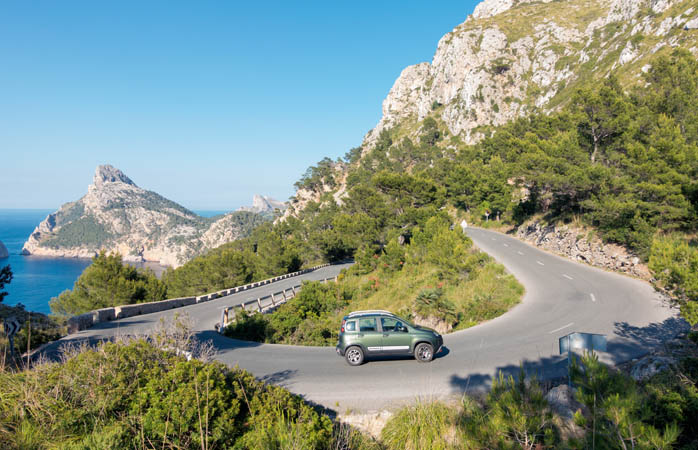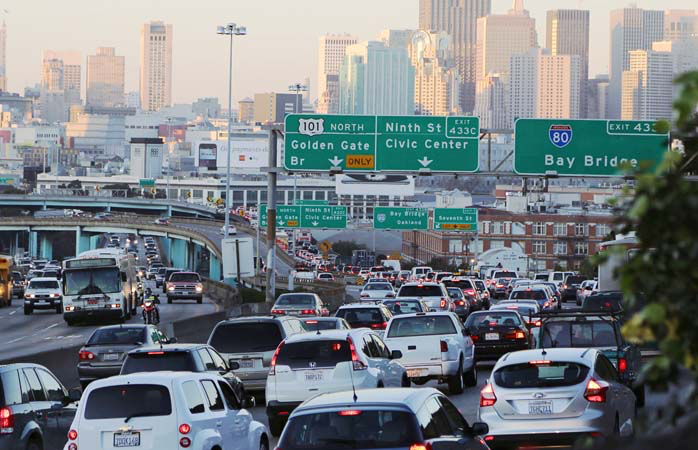Vacation rental car: what you need to know
If you are thinking of renting a car while on vacation, making a rental car comparison is a must. However, for many of us, this may seem a bit of a hassle. Charges for different things may or may not be included in rental car offers you see; this is why you can’t find out the final price until you’re 99% complete, and you can easily be confused when navigating the various insurance options and other waivers and fees. Fortunately, if you’re comparing your rental car on Battuta, the prices you see are what you’ll pay, and you won’t encounter any surprises or hidden fees (price may change if you choose optional extras like GPS or a child seat). Since we include Damage Liability Insurance, Third Party Coverage and Theft Protection (the three of which will be explained later), you also have your package of insurances you must have. It’s that easy!

We have covered every issue in the sector to enable you to specialize in renting a car. We’ve also shared 15 great tips for you to find out how to find the cheapest and best rental car deals, all you have to do is fasten your belt and start reading!
Damage Liability (CASCO) Insurance (CDW)

Damage Liability Insurance protects the driver from repair costs arising from accidental damage to the vehicle. However, you should check whether the insurance package protects you from all financial liability in case of damage to the vehicle during the rental period, or does it only cover the excess amount specified in the car rental conditions (the excess value is the maximum amount for which the driver can be held liable). For example, if the overage is $20, but you caused $80 of damage, you don’t have to pay more than $20 (insurance covers the rest).
Theft Protection (TP)
Theft Protection works just like Damage Liability Insurance: you are protected against the risks of theft of the vehicle instead of the damage costs and you are not liable for the amount stated above.
Third Party Coverage (TPLP)

Third Party Coverage covers damage to other people’s property (eg, third party vehicles, etc.) and medical expenses for injuries under your or another authorized driver’s responsibility. The maximum coverage limit is listed in the rental terms and varies depending on the provider company and where the vehicle was picked up.
Personal Accident Insurance (PAI)
Third Party Coverage covers damage to other people’s assets and injuries, while Personal Accident Insurance covers medical expenses or accidental death that you or your passengers may face in an accident that may occur during the rental period (don’t forget to check your personal life or health insurance before renting a car, because it’s already insured. You may be covered).
Supplementary Liability Insurance (SLI)
Complementary Liability Insurance offers you and all authorized drivers extra coverage against physical injury and property damage caused by third parties. It can be purchased from car rental offices and increases the maximum limit of Third Party Coverage.
Roadside Assistance (RA)

Roadside Assistance; Loss of keys, tire change, vehicle locked, battery failure, petrol transportation etc. It offers support service and financial insurance coverage in case of functional problems and unexpected emergencies. Not to be confused with Breakdown Assistance, which provides simple protection should the vehicle fail mechanically through no fault of yours (you can check for Breakdown Assistance plans from your vehicle supplier, many include this in the price).
15 useful tips
You can search for your rental car as you wish, but keep in mind our 15 tips that will enable you to complete your rental car with peace of mind.
1. Talk to your insurance company or credit card provider to find out what types of insurance they offer for rental cars. You may be able to get the same or better insurance from your own company for only a small additional fee (you may also be covered by some options such as Personal Accident Insurance)
2. Make sure you have unlimited mileage for your rental car, or you may have to pay a high fee to deliver the car
3. You should also check whether you will be able to pick up your vehicle from the airport, otherwise you may have to travel a considerable distance to receive it.
4. When picking up the vehicle, do not forget the magic trio: driver’s license, credit card and rental receipt in the name of the original driver (you should also make sure that the credit card limit is sufficient for any loss/deposit in case of any problems)
5. If you intend to cross into other countries by car, you should check if the rental car company charges a border crossing fee.
6. You should read everything carefully before signing. If there are fees you don’t know what they are, ask right away. If the total amount shown is more than your receipt, you may have unwittingly applied for optional insurance that you don’t need.
7. You should check the vehicle for any damage and take a photo of it to make sure you have it recorded before you set off.
8. You can consider hiring the vehicle with a full tank and return it with a full tank, otherwise you may pay high prices for gasoline and service fees.
9. At the car rental branch, you can ask where the nearest gas station is, so you can refuel before delivering the car
10. Don’t forget to check the road rules of your location (you can get tips and advice from AA for Europe, official tourism site for Australia and USA.gov for USA (keep in mind that each state has its own rules)

11. You should make your reservation as far in advance as possible and be on the lookout for special deals
12. You can bring your own GPS and child seat. The daily rates you pay for each can be huge, and many airlines already let you bring a child seat (and stroller) for free.
13. You can play around with your booking dates – sometimes adding a few hours or even a few days to the rental period and making it into a week can get you special weekly rates or tariffs (even if it comes at the same price, those few extra hours can come in handy in case of delays). But don’t say we didn’t warn you! Some companies may charge additional fees when they deliver the vehicle before the agreed time. Don’t forget to ask about this when you take delivery of your vehicle.
14. You must be honest and not try to cheat the system. Insurance is a bit of a mess, and if something bad happens to you, trying to explain why you’re lying about your age or what country you’re from just because they’re offering a cheaper rate is one of the last things you want to do.
15. Don’t give up on your thoughts. Don’t let them scare you into buying additional insurances and options at the car rental branch. Now that you’re a car rental comparison expert, you can plan your next adventure with complete peace of mind!





